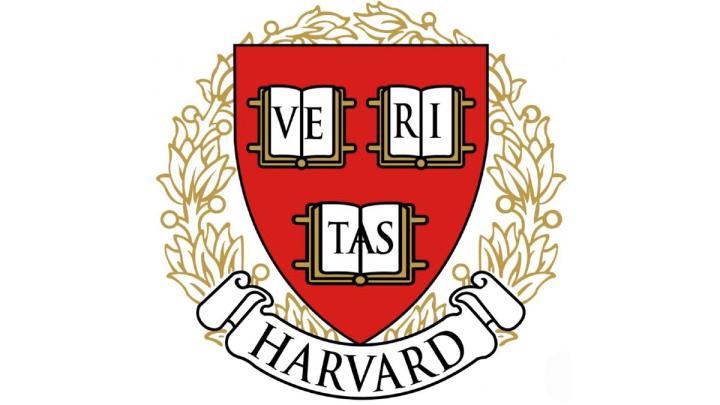In a message to the community this afternoon, President Lawrence S. Bacow announced that Harvard had “failed” Terry Karl, now an emerita professor of government at Stanford, when it did not take seriously her complaints concerning sexual harassment and misconduct by Jorge Domínguez, formerly the Madero professor for the study of Mexico and Harvard’s first vice provost for international affairs. Bacow wrote, “She deserved better, and she and others suffered greatly as a result. I also apologize to those whose subsequent sexual harassment might have been avoided if Harvard had taken timely and appropriate actions. We all owe Dr. Karl a debt of gratitude for doing the right thing, especially when it was difficult, and for being persistent in her efforts to demand justice. I deeply regret that she—and so many other members of our community—were made to feel that we turned our backs on them. Everyone deserves a fair process, and no one should ever again have to go to the same lengths to be heard.”
His message accompanied the final report from the external review committee convened in 2019 in response to accusations of decades-long sexual harassment by Domínguez. Those accusations had been brought to light in a 2018 investigation in the Chronicle of Higher Education, in which Karl described the harassment she suffered from Domínguez during the 1980s as a Harvard assistant professor. She reported the misconduct at the time, but Domínguez was given only a minor sanction, and the abuse continued. Karl left her position at Harvard in 1983; he remained a faculty member in good standing for decades. A month after the Chronicle story appeared, he retired and was subsequently stripped of his emeritus status and effectively banned from the University by Faculty of Arts and Sciences dean Claudine Gay, after a Title IX misconduct investigation. The government department then undertook an assessment of its own climate, and in 2019 requested that Bacow convene the external committee to review sexual harassment across the University.
The committee was chaired by Susan Hockfield, professor of neuroscience and president emerita at the Massachusetts Institute of Technology. The other members were Vicki Magley, professor of psychological sciences at the University of Connecticut (an expert on sexual harassment and workplace incivility), and Kenji Yoshino, the Chief Justice Earl Warren professor of constitutional law at New York University School of Law and 2016-2017 president of Harvard’s Board of Overseers.
The committee’s charge was threefold:
•to identify the cultural or organizational factors at Harvard that have inhibited those who have suffered sexual misconduct from reporting it;
•to identify the factors that have inhibited an effective response by the University once misconduct was reported; and
•to strategize ways that candidates for leadership positions might be vetted, to assure that the University is aware of any allegations of misconduct, including sexual harassment.
Its report included a series of specific recommendations for improving the process of reporting and investigating sexual misconduct, and for improving the climate on campus in ways that discourage harassment or discrimination and that also make it easier for Harvard community members to feel safe reporting harassment and discrimination.
Among those recommendations: fostering a sense of greater “psychological safety” to allow those who have been abused to feel comfortable coming forward—especially important, and difficult, in hierarchical structure’s like Harvard’s. Pronounced power disparities and a persistent gender imbalance among faculty members contribute to this problem, the report concluded. The number of female faculty members in the government department has risen from 9 percent in 1980 to 31.3 percent in 2019, although the committee report noted “consistently articulated concerns” about recruitment, retention, and advancement of female scholars. “Several sources suggested that the dearth of female faculty members led to underreporting,” the report stated. The committee members reviewed reports from government department visiting committees between 1972 and 2019, and observed, “One Visiting Committee Report expressed the view that women were more likely to disclose harassment to women faculty members. One female student likewise stated, to broad assent in the room, that she would find it easier to discuss sexual harassment with a female faculty member than with a male one.”
The committee also faulted inadequate reporting procedures, while noting improvements in recent years with Harvard’s updates to its Title IX policy. But effectively communicating about those procedures to University community members remains an area of needed improvement. “Robust policies and procedures now in place are of little value if they are not widely understood and adopted,” Bacow wrote about that observation. “Everyone at Harvard should know how they can help to create a safe and healthy community, and anyone who has experienced or witnessed unwelcome conduct should find the experience of exploring available resources and making informed decisions straightforward and helpful. To those ends, the University accepts the committee’s recommendations, and I have asked the Title IX Office to accelerate existing plans” for improving communications about reporting procedures.
Much of the committee’s emphasis was cultural, a note that Bacow reinforced in his letter. “Culture is—and always will be—rooted in our care for one another,” he wrote. “Individuals who demean and exploit others defy the values we hold dear and must find neither comfort nor cover in our community.”
The committee’s full list of recommendations, in brief:
• Foster greater “psychological safety”
• Better communicate processes for reporting misconduct
• Achieve greater faculty gender balance
• Improve transparency around investigations and sanctions
• Monitor employees with past infractions
• Hold University units accountable
• Communicate structures to address disclosures
• Establish standardized processes for vetting candidates
• Establish a centralized personnel database
• Accelerate progress toward a culture intolerant of sexual and gender-based harassment
Read the full report here. Bacow’s message appears here.








